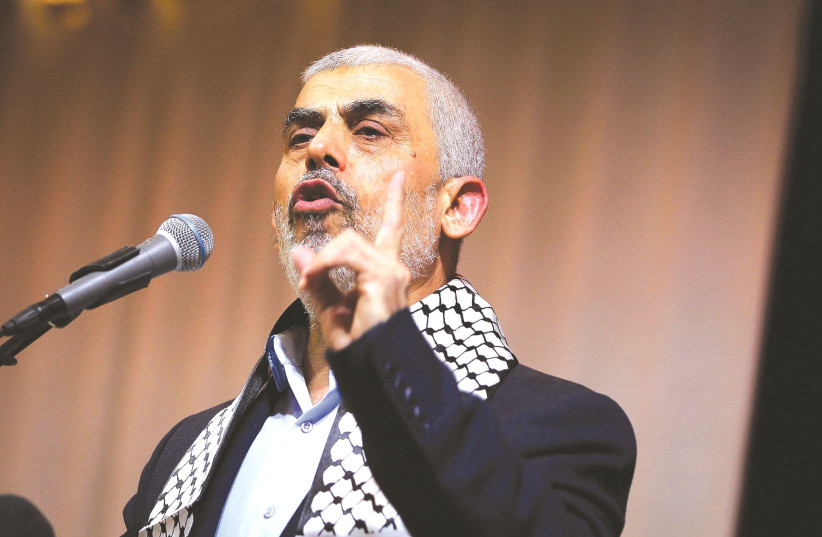Israel and the UN are particularly concerned about the resumption of Qatar cash payments out of fear that Hamas would divert them for military purposes.

(photo credit: ABED RAHIM KHATIB/FLASH90)
Hamas plans to escalate tensions with Israel unless it allows Qatar to transfer $30 million to the Gaza Strip to help pay salaries, KAN News reported on Monday.
The terrorist group’s leader in Gaza, Yahya Sinwar, met on Sunday with UN Special Coordinator for the Middle East Peace Process Tor Wennesland and pressed him on the matter.
A discouraged Sinwar briefed reporters on the failure of the talks with the UN envoy and accused Israel of blackmail, calling for popular resistance while pledging to convene a meeting of all the Palestinian factions to unite their efforts.
Israel and the UN are particularly concerned about the resumption of Qatar cash payments out of fear that Hamas will use the funds to rebuild its military capabilities, significantly weakened during the latest round of violence last month.
One suggested compromise includes using the money to directly fund UN projects in the Gaza Strip.
The issue is supposed to be on the agenda of next week’s meeting in Cairo between Israeli and Egyptian officials, according to KAN.
UN spokesman Stephane Dujarric in New York said Wennesland was “continuing his efforts to solidify the cessation of hostilities.”
Earlier on Monday, Sinwar told reporters that Hamas talks with the United Nations had failed. He announced that he had rejected Israeli provocations and said that a meeting of all Palestinian factions would be held later in the day.
“This was a bad meeting and it was totally not positive,” Sinwar said. “The meeting with the UN delegation was thorough and they listened to us. But unfortunately, there are no indications of intentions to solve the humanitarian crisis in the Gaza Strip,” he continued.
As reported by The Jerusalem Post
